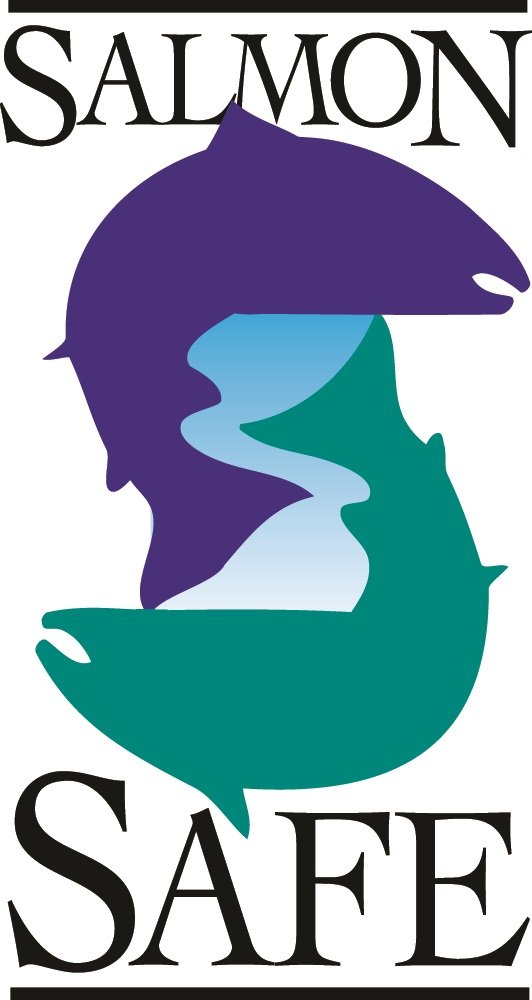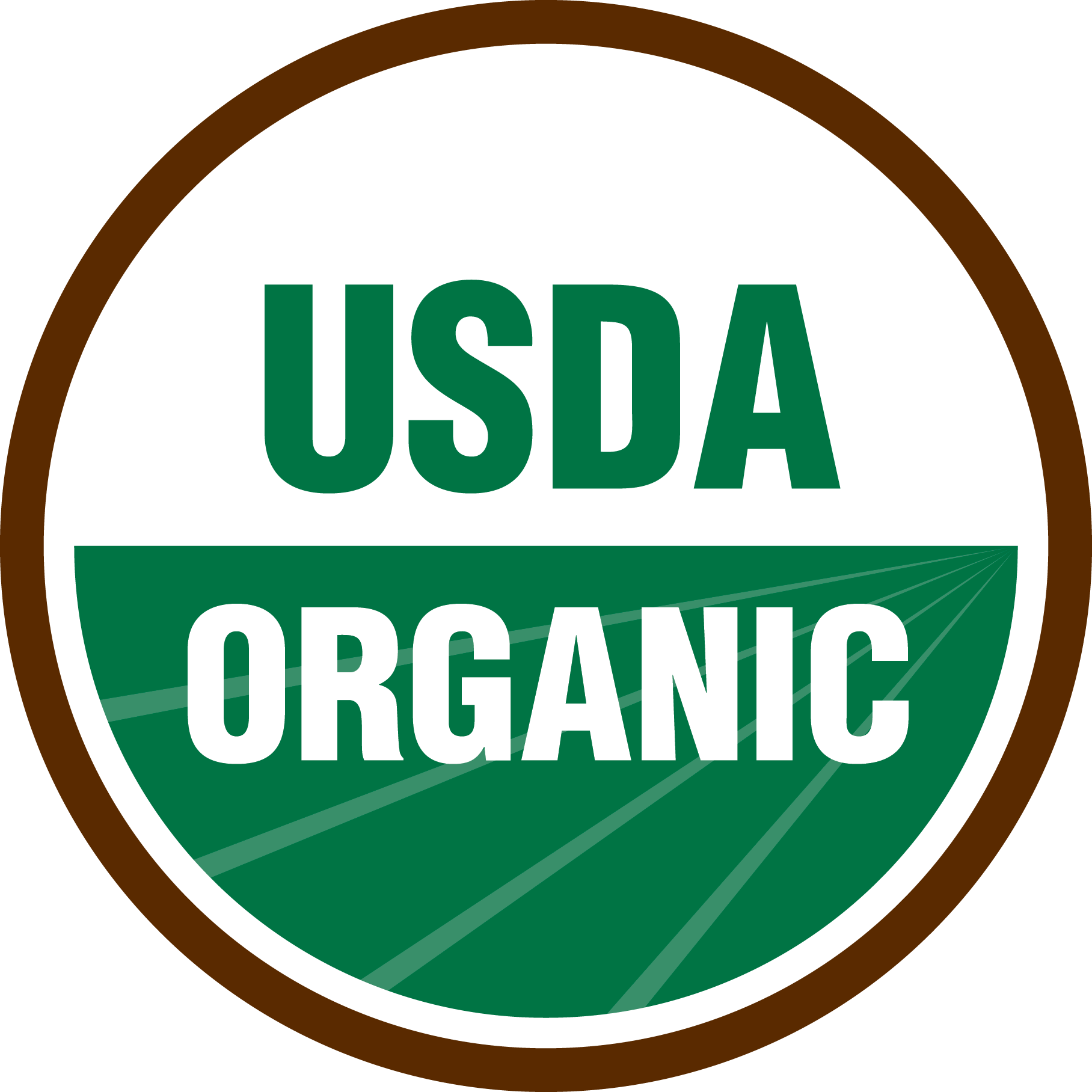Organic vs. Salmon-Safe vs. Conventional: What’s the Difference in How Grains Are Grown?
We’re often asked whether our grains are organic — and it’s a great question. At Palouse Heritage, we believe in being transparent about how we grow and care for the land. Some of our growing partners are certified organic, some are organic but not certified (because the ground is still in the minimum 3-year transition phase), and the rest are Salmon-Safe Certified, which is a regenerative growing standard that is close to organic but has some differences. But what exactly are differences between our organic and Salmon-Safe practices in contrast to the “conventional” approach most other farmers use? This post explains those differences and why we’ve chosen our approach as part of our deep commitment to soil, water, and community health.
How Conventional Grain Is Grown
To understand why we’ve chosen a different path, it helps to know how most grain today is grown. Nearly all conventionally raised grains in the United States are produced using chemical-based farming systems that rely heavily on synthetic fertilizers and pesticides (herbicides and insecticides). Among the most common is glyphosate, the active ingredient in Roundup — a chemical widely used to dry down or “desiccate” grain before harvest and to control weeds throughout the growing season. Glyphosate has been linked to serious health and environmental concerns and is banned or restricted in many countries due to its classification as a likely carcinogen. In addition, conventional grain farming often uses synthetic nitrogen fertilizers like anhydrous ammonia, which can damage soil structure and leach into waterways, harming ecosystems downstream.
What Is “Salmon-Safe Certified” Grain?
Salmon-Safe Certified farming shares much in common with certified organic systems. Both limit synthetic fertilizers and harmful pesticides, emphasize soil health, and promote natural ecosystem balance. The main difference is that Salmon-Safe allows for targeted, minimal use of certain low-impact herbicides when needed, whereas organic certification prohibits them entirely. For many farms like ours, this balanced approach provides a sustainable path forward — maintaining ecological health while ensuring that small-scale grain growers can realistically manage modern challenges like invasive weeds and changing climate conditions.
Harvesting Salmon-Safe Certified Grain at Palouse Colony Farm
Understanding the Differences
The following table helps summarize the differences between conventional, Salmon-Safe, and organic growing practices:
| Category | Conventional | Salmon-Safe | Organic |
|---|---|---|---|
| Herbicides | ☠️ Common use (e.g. glyphosate) | ⚠️ Limited, only targeted & approved | ✅ Prohibited |
| Insecticides | ☠️ Frequent synthetic use | ⚠️ Greatly reduced, low-impact only | ✅ Prohibited |
| Fertilizer | ☠️ Synthetic (e.g. anhydrous ammonia → runoff) | ⚠️ Mostly natural; limited synthetic allowed | ✅ 100% natural (compost, manure) |
| Soil & Water Impact | ☠️ High runoff & erosion risk | ✅ Protects streams & topsoil | ✅ Builds soil life, preserves water |
| Tillage / Erosion | ⚠️ Moderate; varies by system | ✅ Managed to protect topsoil | ⚠️ Often higher from mechanical control |
| Certification Focus | 💰 Yield & efficiency | 🐟 Watershed & ecosystem health | 🌱 Soil biology & purity |
| Typical Cost / Effort | 💲 Low | 💲💲 Moderate | 💲💲💲 High |
Our Palouse Heritage “Regenerative” Approach: A Blend of the Best of Organic and Salmon-Safe
Here in the Palouse, our fertile soils and generous rainfall create ideal conditions for growing flavorful, nutrient-dense heritage grains — but those same conditions also make our fields attractive to weeds. To protect our crops without relying on harsh chemical systems common in conventional agriculture, we use very small, carefully targeted applications of light, Salmon-Safe approved herbicides. These are fundamentally different from chemicals like glyphosate and are used only when necessary to keep invasive weeds under control.
We also avoid all pesticides and rely solely on natural fertilizers (including cover crops as part of healthy crop rotations), never synthetic sources such as anhydrous ammonia. The selective use of Salmon-Safe approved herbicides allows us to reduce the amount of mechanical tillage needed for weed suppression — which helps preserve topsoil and protect soil structure. The result is grain grown with deep respect for the land, water, and community — and a far cleaner, safer end product.
We also partner with growers who are fully certified organic, enabling us to soon offer both organic and Salmon-Safe certified Palouse Heritage grains. Organic grain tends to be more costly, in part due to the added labor and time required for mechanical weeding, diverse crop rotations, cover cropping, and composted manure. These practices build long-term soil fertility but often mean more tractor passes and higher operating costs. Additionally, because organic growers rely exclusively on physical weed control, their systems can sometimes increase the risk of topsoil disturbance compared to reduced-tillage Salmon-Safe methods.
To summarize, you can rest assured that value the practices that are best for earth and human health while providing some choices to our customers:
| 🌾 The Palouse Heritage Regenerative Approach — Blending Salmon-Safe & Organic 🌱🐟 | |
|---|---|
| GMO Use | 🚫 Always Non-GMO — we grow only natural, heritage varieties. |
| Glyphosate | 🚫 Never Used — no pre-harvest desiccation or chemical weed kill. |
| Insecticides | 🚫 Zero Synthetic Insecticides — we protect biodiversity, not harm it. |
| Fertilizers | 🌿 No Synthetic Fertilizers — we build fertility through natural fertilizers and crop rotations. |
| Soil & Water | 💧 Restorative — practices protect waterways and restore healthy soils. |
| Core Philosophy | ❤️ Health for People and the Environment — honoring the land and its living systems. |
Looking Ahead: Expanding Fully Organic Heritage Grains
Alongside our Salmon-Safe crops, we’re expanding our line of fully organic heritage grains in partnership with growers who share our regenerative values. This gives our customers the freedom to choose what’s right for them—knowing that every bag of Palouse Heritage grain carries the same promise: exceptional flavor, honest integrity, and deep respect for the land that sustains us.
No matter the certification, all Palouse Heritage grains are grown regeneratively—Non-GMO, without glyphosate, pesticides, or synthetic fertilizers—to protect both the soil beneath our feet and the food on your table.
→ Shop our heritage grains and bring the difference of regenerative farming to your home baking and cooking.



